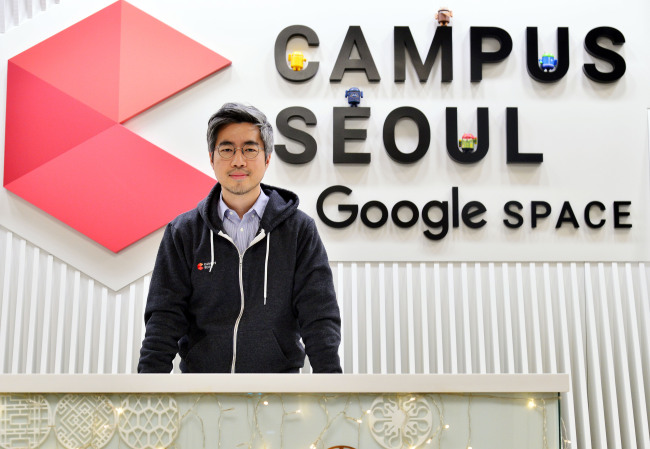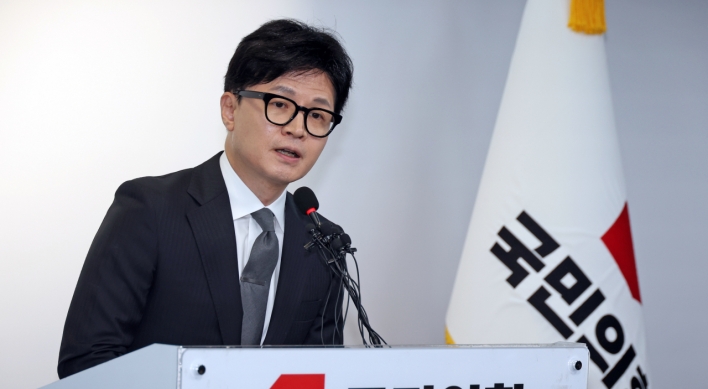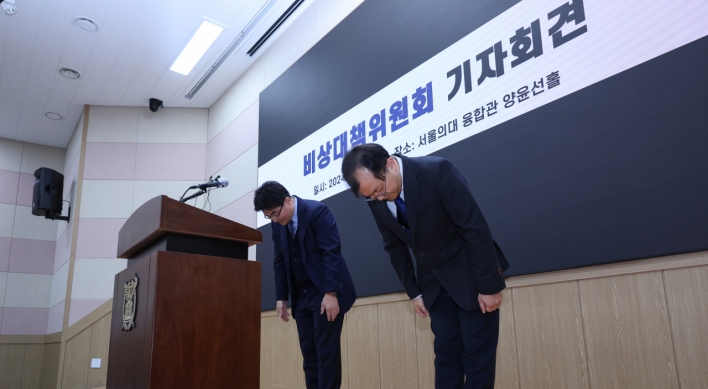[Eye Interview] A helping hand for future ‘unicorns’
Entrepreneurship, teamwork and global vision needed for Korean start-ups, says head of Google Campus Seoul
By Sohn Ji-youngPublished : Dec. 23, 2016 - 16:28
As an entrepreneur and an investor, Jeffrey Lim, head of Google Campus Seoul, has seen the rise and fall of various South Korean startups.
In the startup world, ideas driven by passion have immense potential, but are prone to failure. Knowing this, what concerns Lim most about Korean startups is not the quality of their ideas, but an absence of entrepreneurship and teambuilding efforts which he believes are more important considerations for budding enterprises.

To change, Korean entrepreneurs should return to the basics -- focus on building a solid work culture, spend sufficient time and resources to hire the right people and form a clear decision-making system that can resolve conflicts, Lim says.
“Compared to startups in Silicon Valley or elsewhere, South Korean startups still tend to devote their focus only on the product or idea,” the 41-year-old chief of Google Campus Seoul said during an interview with The Korea Herald.
“A product or idea can always fail. But teams that can maintain unity and continue pursuing new products or services are bound for eventual success. And building that sort of teamwork takes more than just a good product or idea,” Lim said.
Nonetheless, many Korean startups tend to overlook or downgrade these elements of running a new company partly because they were never fully educated on what entrepreneurship means and what it entails.
And this is one of the things that Google Campus Seoul is working to break.
Headquartered in Seoul’s tech-savvy Gangnam District, Google Campus Seoul was founded in May 2015 as a co-working space for startups and entrepreneurs to interact with one another and partake in the diverse startup support programs led by Google.
From plugging local startups into Google’s global networks and resources, to guiding young CEOs on what to do as a company scales up its business and workforce, Campus Seoul hopes to become a force for positive change in Korea’s booming startup community, Lim said.
Steered by a team of six including Lim, Google Campus holds a broad and ambitious mission -- to build up a strong and self-sustainable startup community ecosystem that can foster many global “unicorns,” or startups valued at $1 billion or more.
Around a year and a half into its making, Google Campus Seoul has officially housed 16 startups which have together attracted more than 12.1 billion won ($10.04 million) in investment, as well as hosted more than 500 community events and programs for startups.
Some of the US tech giant’s most recent programs include “Campus Connect,” which fosters new business opportunities among companies at Google’s six campuses and more than 50 partners worldwide.
As part of this global exchange program, Campus Seoul recently brought a group of Korean startups to Google Campus Shanghai to network with other Asian entrepreneurs and investors and in turn discover new opportunities.
Other standout offerings include “Google Experts Week,” which invited 12 experts from Google’s headquarters to mentor Korean startups for two weeks in fields ranging from advertising and sales to data analytics and user interface design.
On top of its programs, Lim believes that Campus Seoul’s role as a co-working space offers startup CEOs a much-needed opportunity to interact with others who are experiencing similar struggles.
As companions on what can be a lonely and uncertain journey, they can co-navigate solutions to common problems, discover their visions and learn from each other, he said.
Trained as an industrial engineer in Korea and the US, Lim began his professional career in the 2000s as an engineer in the US software startup Bitfone Corp. He later joined Softbank Ventures Korea where he led investments into promising internet and mobile contents start-ups here.
Eyeing new opportunities in Korea’s then-nascent social gaming sector, he went on to co-found one of Korea’s first social gaming firms, RocketOz, in 2010. While looking for new opportunities after selling his company, he accepted Google’s offer to join Campus Seoul.
Given his background, Lim himself is also a helpful asset to the startups being hosted by Google Campus. As a former entrepreneur and venture capital fund manager, he can offer hands-on advice to young CEOs and address their struggles.
“I’m able to talk to young CEOs about my past experiences with startups, both good and bad,“ he said. “This ranges from sharing how to negotiate with investors in certain situations to offering advice on recruiting and conflict-solving.”
For the Campus Seoul chief, another problem he sees in Korean start-ups is not only an immature sense of entrepreneurship but also a weak global vision weighed down by structural challenges.
“It’s a lot more difficult than you think for Korean startups to venture out to overseas markets, compared to their counterparts elsewhere,” Lim said.
Though more startups appear to be entering the nearby Chinese market, most of them struggle with breaking into the US and Europe due to a lack of information, local networks as well as physical and cultural barriers.
“Korean startups need lots of connections to overseas investment partners and consumers to go global. However, most startups find it difficult to come by such connections,” Lim said.
According to the Google Campus executive, this situation is closely linked to a lack of foreign venture capital funds operating here. They find it difficult to invest in Korea due to stringent immigration and foreign business visa regulations.
“Foreign VCs are arguably the most helpful entities that can promote Korean startups in overseas markets and broker new market connections. Yet Korea’s legal system makes it difficult for such companies to enter Korea,” Lim said.
Looking ahead, Lim wants to direct more resources into supporting a handful of promising local startups, with the aims of turning them into entities that can positively impact and transform Korea’s startup ecosystem.
“I think it’s important to make sure that we help engender startups that can set a new standard, make an impact on society or become a role model for other entrepreneurs. It’s a much tougher goal than one pursued by startup incubators or accelerators,” Lim said.
“Over time, we hope that our activities will have a long-term impact on Korea’s startup sector in which more small companies can compete on a global scale on their own without our support, and become unicorns,” he said.
By Sohn Ji-young (jys@heraldcorp.com)



![[Exclusive] Korean military set to ban iPhones over 'security' concerns](http://res.heraldm.com/phpwas/restmb_idxmake.php?idx=644&simg=/content/image/2024/04/23/20240423050599_0.jpg&u=20240423183955)
![[AtoZ into Korean mind] Humor in Korea: Navigating the line between what's funny and not](http://res.heraldm.com/phpwas/restmb_idxmake.php?idx=644&simg=/content/image/2024/04/22/20240422050642_0.jpg&u=)

![[Graphic News] 77% of young Koreans still financially dependent](http://res.heraldm.com/phpwas/restmb_idxmake.php?idx=644&simg=/content/image/2024/04/22/20240422050762_0.gif&u=)




![[Pressure points] Leggings in public: Fashion statement or social faux pas?](http://res.heraldm.com/phpwas/restmb_idxmake.php?idx=644&simg=/content/image/2024/04/23/20240423050669_0.jpg&u=)







